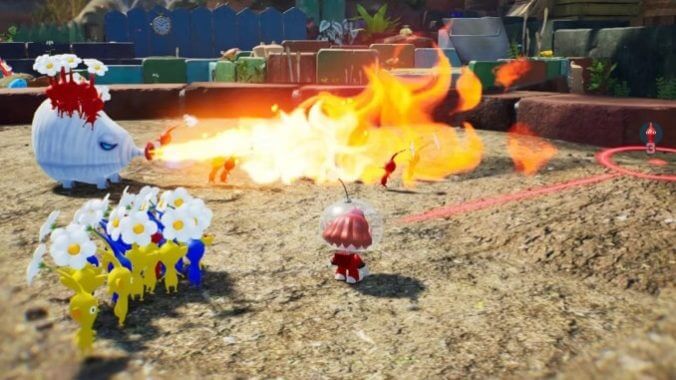Pray for Pikmin: The Sad, Short Lives of Nintendo’s Hardest-Working Little Guys

Pikmin 4 reminds us of what has always been true: Pikmin are born tear jerkers and perfect victims. These tiny little walking flowers grind their way through lives of service to otherworldly masters who dispose of them like so much trash, cheerfully marching to oblivion to scrounge up whatever litter catches their owner’s eyes or to sacrifice themselves to the deadly plant-beast mutants that beset their prison planet. When their mercifully brief lives come to a close, their visible souls drift skyward as they let out a death moan, a moment that always ends in tears no matter how many times you see it. Despite their tiny voices and strong personalities, Pikmin are a resource and not a community, the game forces upon us; we’re encouraged to treat them as expendable, especially the common ones that can be grown with pellets, and then immediately made to feel guilty about our poor leadership whenever one dies. It’s heartless and cruel, but so are we by prioritizing our own needs over their safety and security. It’s also, intentionally or not, a grim precis of what we all have to look forward to. The Pikmin’s life is sad, short, and defined by toil, and ultimately so are ours. Shit. At least they’re really cute.
I am not really cute. I also have never died at work—or, if I have, the afterlife is remarkably like the one that came before it—despite wishing I had before. Who hasn’t had to work through gut-wrenching stress or soul-destroying boredom, that combination of fear, worry, and weariness that is the default mode so many of us live in? We hate our jobs but are frightened of what will happen if they end. We resent having to devote so much of our lives to people and places that view us as faceless, interchangeable parts that will inevitably have to be replaced, who reserve the right to upend our entire existence for any reason whatsoever. I’ve known the grind of the Pikmin, but never really felt the cheer or grace they maintain in the face of their ultimate irrelevance. The closest was when I sold frozen yogurt to suburban kids after swim meets; at least there I could actually see firsthand people enjoying the commodity whose production was a piece of my own death.